SEO for Ecommerce Websites That Generate Results
Don’t just take our word for it! Take a look at some statistics from our eCommerce SEO case studies below. Our proven SEO methodologies helped generate more sales for a door lock and hardware store, with our one-year average Return on Advertising Spend (ROAS) reaching an impressive 820.14%.
These results speak volumes about the effectiveness of our strategies in driving targeted traffic and converting leads into loyal customers. With a focus on data-driven insights and continuous optimization, we’re committed to delivering exceptional results for your business.
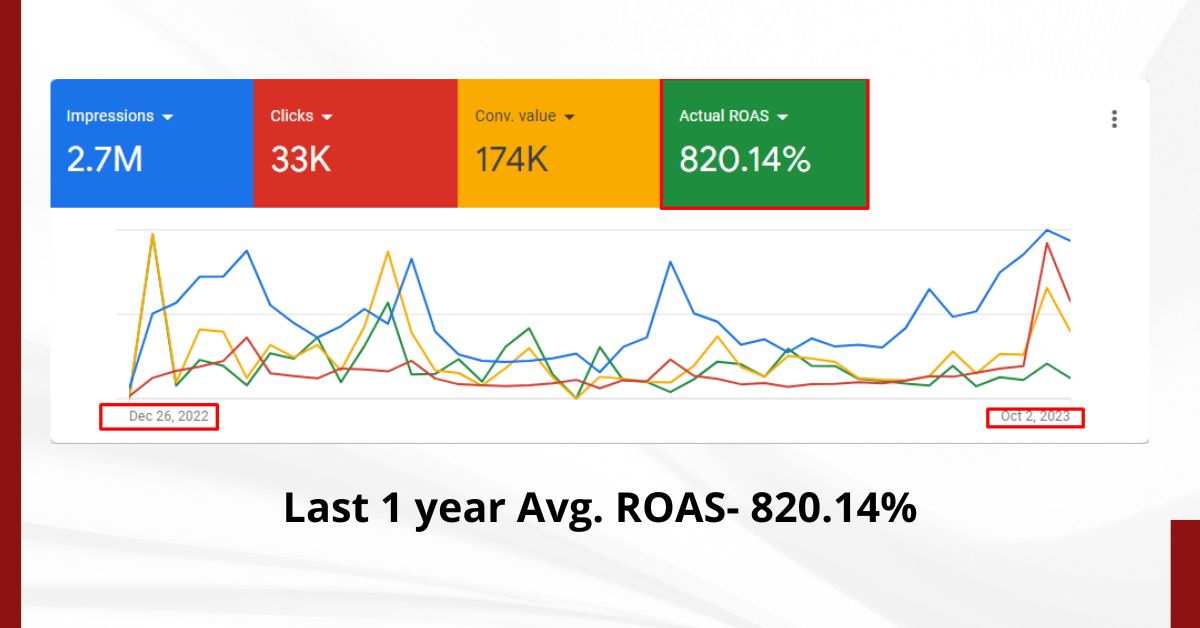
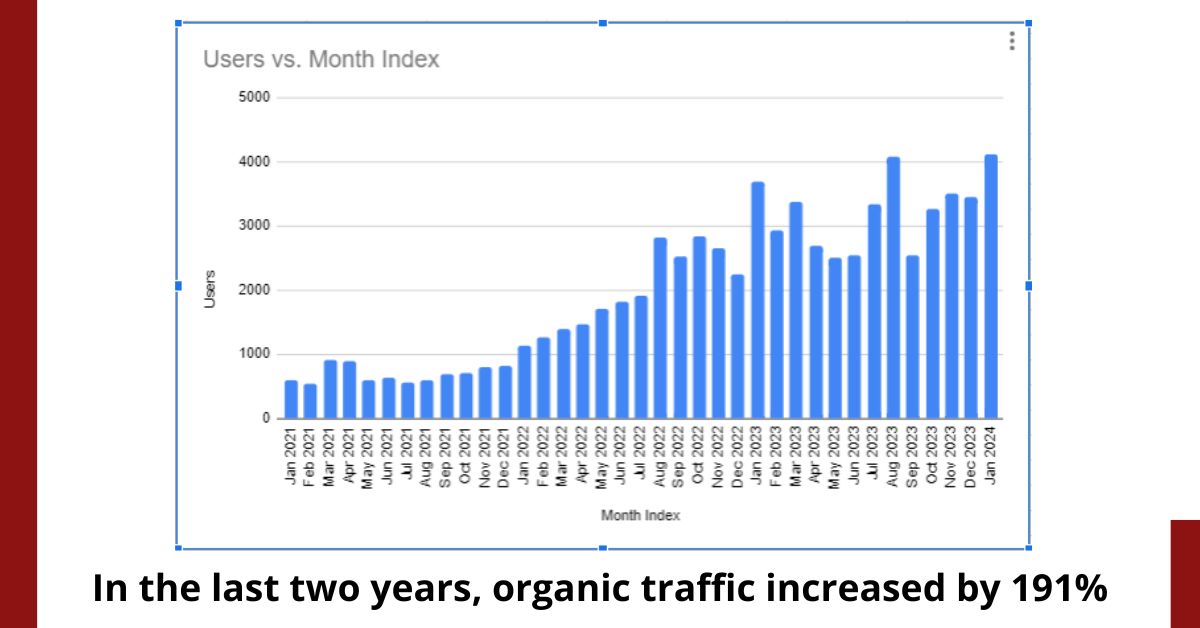
In another eCommerce SEO case study, our SEO strategy led to a significant 191% increase in targeted traffic for an online door lock and hardware store.
E-Commerce SEO Case Studies
- Scaling a B2B Brand: Increasing Organic Traffic from 599/Mo to 4000/Mo in the Last Two Years Through SEO.
- 92% Increase in SEO Traffic in Under 6 Months.
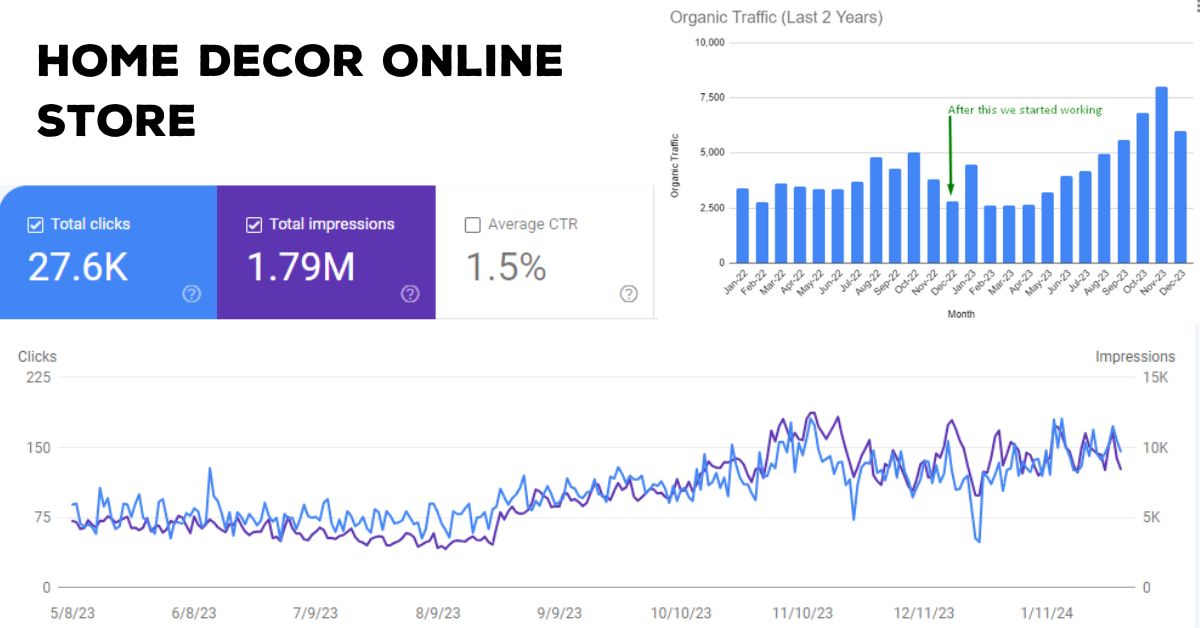
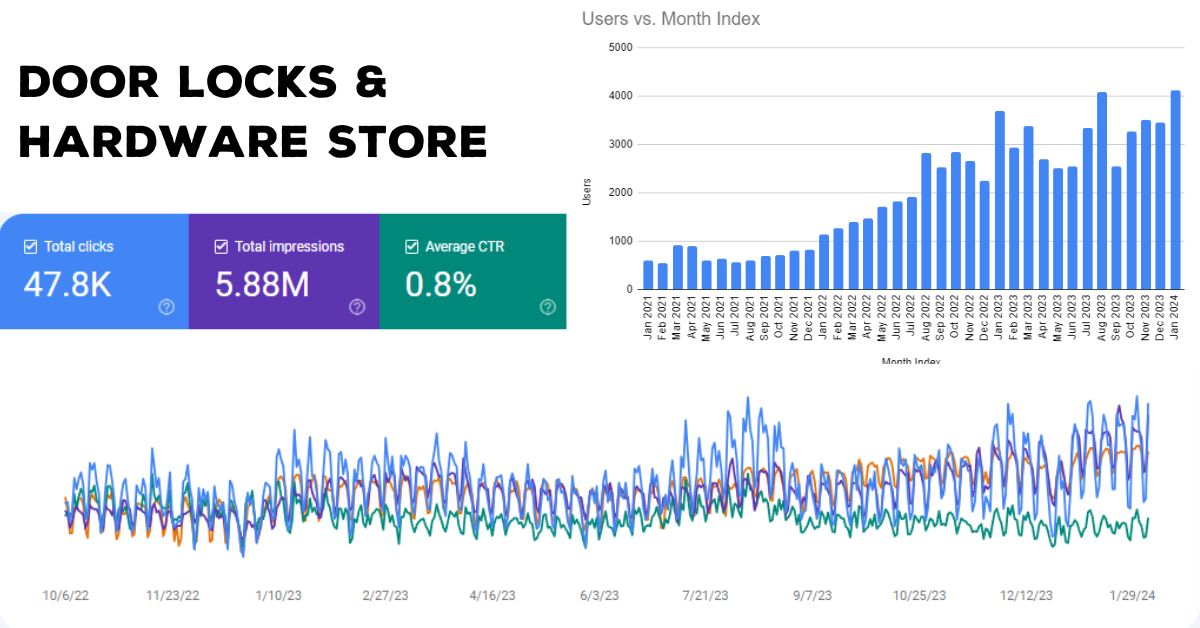
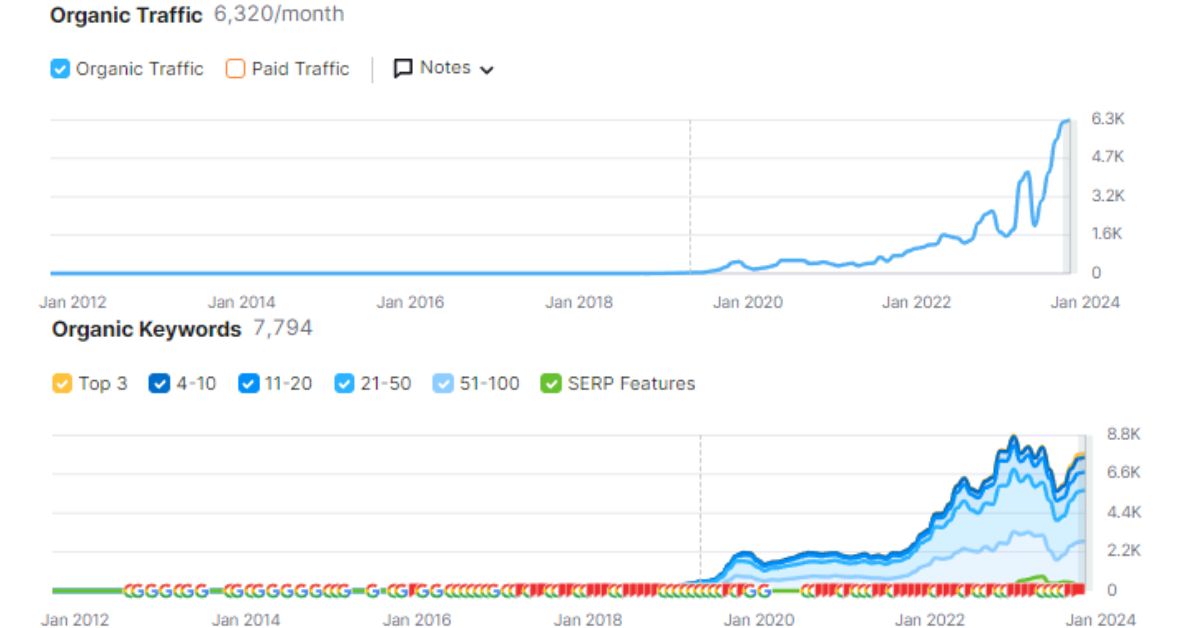
Get Fast SERP Results Now
A Tested Method for Achieving Outstanding Results
Kickoff Meeting
Competitor Analysis
Keyword Strategy
Store Page Optimization
Content Creation
Link Acquisition
Technical SEO
Tracking & Reporting
Customised SEO Package
Ecommerce SEO Services Tailored to Your Business
The eCommerce SEO services that we offer are varied and complex, accounting for a diverse and comprehensive range of ranking signals that collectively result in how Google crawls and indexes your eCommerce website, resulting in organic rankings.
By pairing our experience with SEO best practices with a flexible, customer specific approach, our SEO consultants are able to generate SEO strategies that build your organic rankings over time, allowing your eCommerce website to climb to the top of the search engine results pages, making them much more visible to your target audience.
For most SEO projects, the first step is a deep dive into the industry in which the client operates, one that accounts for their competitive positioning and the strategic position of their biggest rivals in that sector.
During this phase of research, our project managers and technical team familiarize themselves with industry trends, consumer behavior and preferences, and any other details specific to that niche of the industry. We want to know what makes your business, as well as the competition in your sphere, successful. Our goal is to develop a thorough understanding of and familiarity with your target market, so we can identify what does and does not appeal to them. By analyzing the preferences of your target market as well as the strengths of your competitors, we can pursue better opportunities and proceed more effectively.
After analyzing the fine details of the conditions surrounding your industry, our SEO consultants and specialists begin an intense period of keyword research.
Our project managers spend a significant amount of time in the preliminary stages of a new SEO project exploring opportunities for keywords before they compile a list of target keywords to send to their clients for review.
This process is resource intensive and utilizes multiple tools with the intent of developing a keyword strategy that will generate the biggest success over time, given a client’s unique standing in their industry.
While searching, for the ideal balance of keywords, our project managers consider search volume and the level of competition associated with each keyword or search term with the aim of determining which words or phrases will be most lucrative to target pursuant to the client’s strategy. They also analyze search intent in order to weed out which search terms clients are actually looking for – and why they are looking for them.
The result of this keyword research and analysis invariably yields a mixture of keywords, both long and short tail, ranging from highly competitive to less competitive keywords that are intended to produce the quickest gains in organic rankings due to their opportunistic nature.
This list of lucrative keywords is the foundation for the success of our SEO process. Once our project managers and clients agree on a compilation of strategic target keywords, our technical specialists work very closely with them to begin onsite optimization of our client’s websites.
For most SEO projects, the first step is a deep dive into the industry in which the client operates, one that accounts for their competitive positioning and the strategic position of their biggest rivals in that sector.
During this phase of research, our project managers and technical team familiarize themselves with industry trends, consumer behavior and preferences, and any other details specific to that niche of the industry. We want to know what makes your business, as well as the competition in your sphere, successful. Our goal is to develop a thorough understanding of and familiarity with your target market, so we can identify what does and does not appeal to them. By analyzing the preferences of your target market as well as the strengths of your competitors, we can pursue better opportunities and proceed more effectively.
After analyzing the fine details of the conditions surrounding your industry, our SEO consultants and specialists begin an intense period of keyword research.
Metadata, such as meta titles and meta descriptions, affect both SEO and user experience. The meta title gives a search engine a quick impression as to what the page in question is supposed to be about. The meta description gives prospective users a sneak peek at the contents of the page. A keyword-optimized, informative meta description will educate users and encourage customer engagement with your website. A thoughtfully crafted meta description will also enhance user experience and promote conversions.
Both of these features of metadata can be optimized, and there is an optimal length and keyword density for both. Our technical team will meticulously comb your website, optimizing your metadata for length, keyword density and relevance to the target page, and even user experience.
At the start of an SEO project, our SEO specialists will conduct a thorough scan of your website for duplicate content. Though it is a fairly common practice for eCommerce merchants to include manufacturer produced content on their web pages, this is actually fairly counterproductive from an SEO standpoint.
Duplicate content can result in a penalty from Google in a worst-case scenario. Even if it doesn’t, Google will pick up on it and assign more authority to the original source, robbing your website of potential. If our specialists find duplicate content, we’ll advise that it be removed and replaced with fresh, original, keyword optimized content that is unique to your website.
Best eCommerce SEO Company
Get Free SEO Audit Report
eCommerce SEO FAQs
There is no specific timeline for ranking on Google, but being consistent with content creation and selecting keywords that give you a better opportunity to increase your eCommerce SEO rankings can help. By using Google Search Console, you can see which searches provide the most exposure, and which terms you are already ranking for can be improved.

